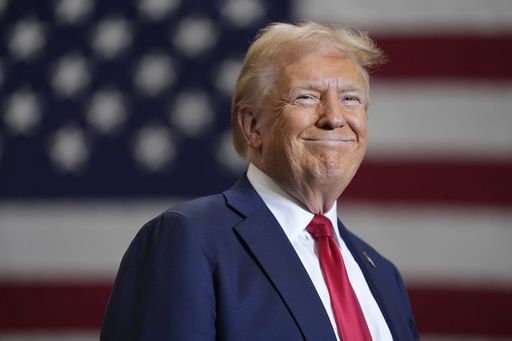
PRAGUE — European nations must avoid isolating themselves from President-elect Donald Trump, according to Lithuania’s defense minister, who advocates for collaboration on mutual interests. The minister, Laurynas Kas?i?nas, emphasized that a perceived “contract approach” could shape future relations, suggesting that areas such as increased defense investments, European purchases of U.S. weapons, and joint efforts to address challenges posed by China and Iran should be prioritized.
Reflecting on the past, Kas?i?nas noted that when Trump won the presidency against Hillary Clinton, European nations erected a “moral wall” against him, which he viewed as a misstep. Speaking during a three-day conference in Prague focused on enhancing European and transatlantic military capabilities, he urged a shift in strategy.
During his initial term from 2017 to 2021, Trump encouraged NATO’s European allies to invest more heavily in defense, aiming for an expenditure of at least 2% of their GDP and fostering a sense of autonomy from U.S. military support. As a result, 23 NATO member states are projected to meet this 2% benchmark this year, a significant increase from just three members a decade ago. Lithuania has exceeded 2.5% in defense spending and aspires to reach 4%, surpassing U.S. investment in defense.
In light of Russia’s full-scale invasion of Ukraine in 2022, Europe’s defense industry has ramped up production of various military equipment. However, many European nations continue to be reliant on the United States for vital military capabilities, as highlighted in a report from the International Institute for Strategic Studies that was presented at the event in Prague.
Lithuania, which shares borders with both Russia’s Kaliningrad exclave and Belarus, stands out as the largest purchaser of U.S. arms among the Baltic states. The minister also expressed his support for the European Union imposing sanctions on Iran, while acknowledging the complexities of the ongoing conflict stemming from Russia’s actions in Ukraine.
Trump has been vocal in his criticism of U.S. assistance to Ukraine and has made ambiguous promises to help end the conflict while commending Russian President Vladimir Putin. Kas?i?nas firmly declared that military support for Ukraine must persist, asserting that Russia should not dictate peace terms. He believes that a limited cease-fire would merely allow Russian forces to regroup and potentially launch further attacks.
“Achieving a just and credible peace is essential,” he asserted. During his campaign, Trump also hinted at policies that could significantly affect European countries, including potential trade disputes with the EU and reconsiderations of NATO commitments.
